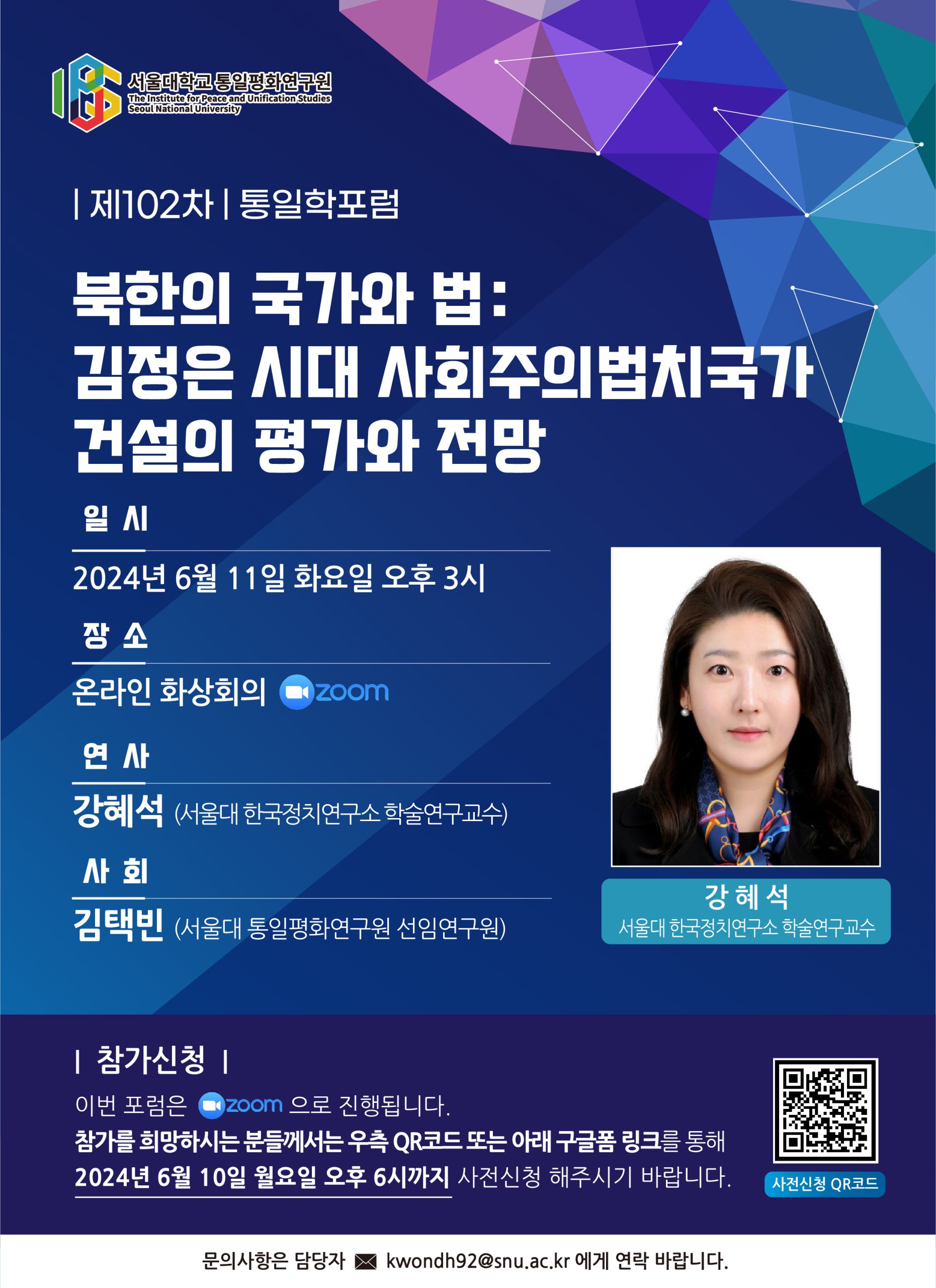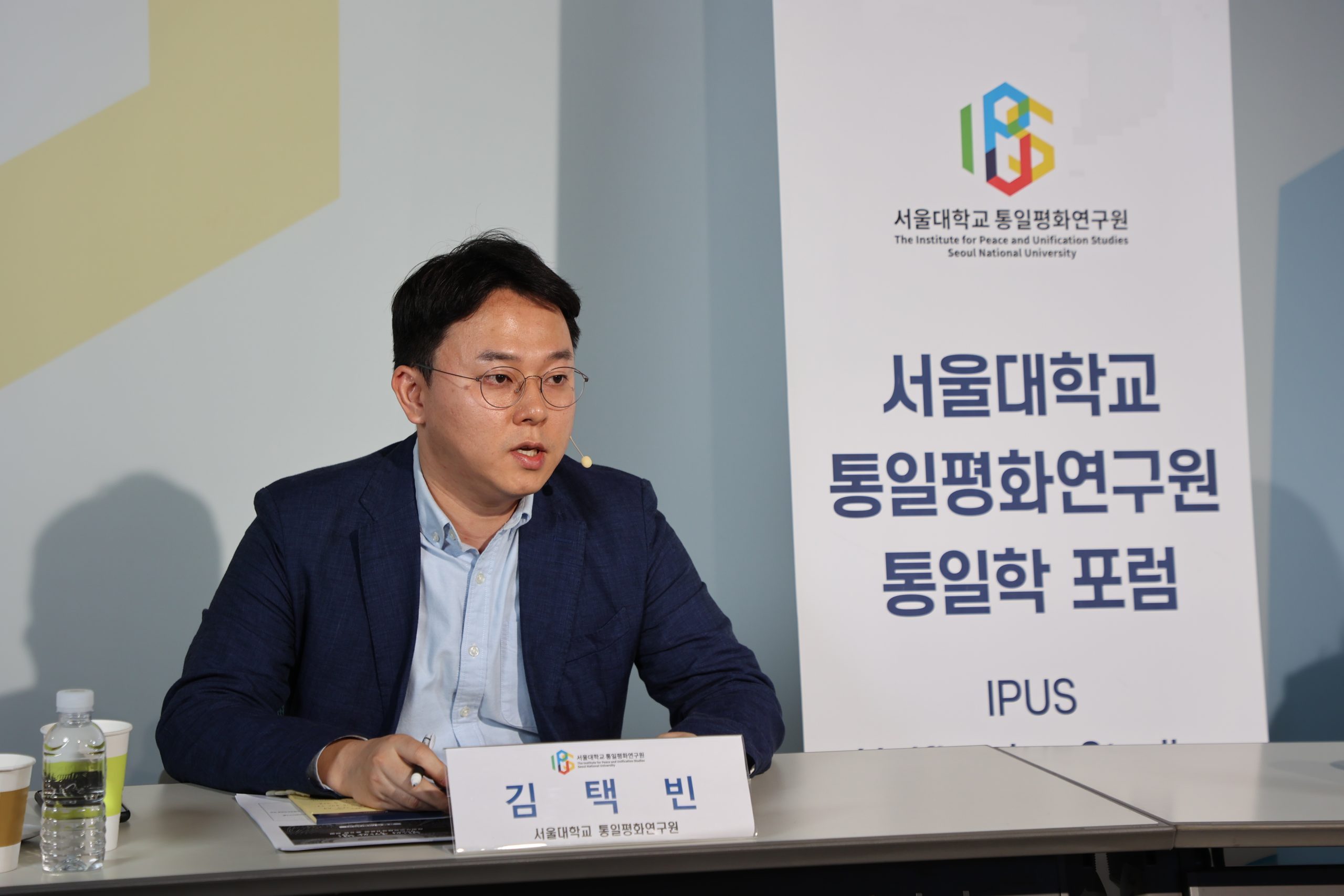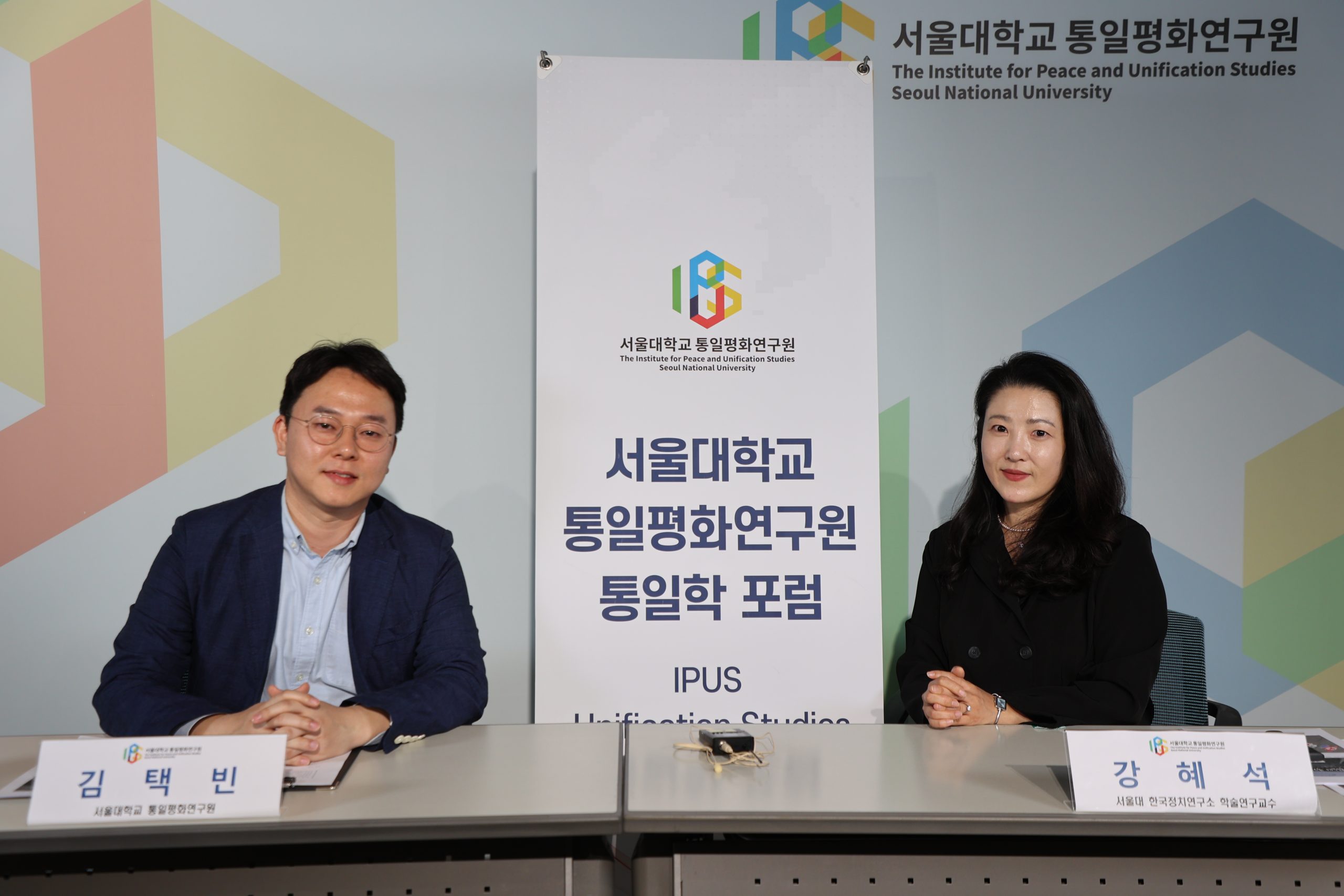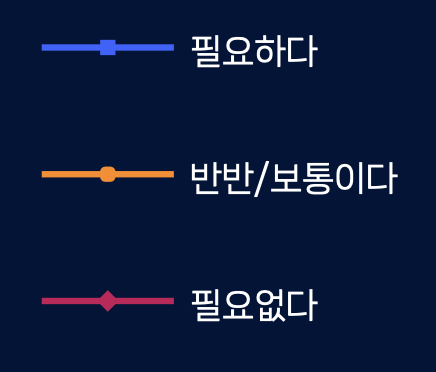[102th Unification Studies Forum] North Korea’s State and Law: Evaluating and Forecasting Socialist Rule of Law
Date: Thursday, May 16, 2024, 15:00 – 17:00 (KST)
Venue: Online video conference (ZOOM)
Speaker: Kang, Hye-seok (Research Professor, IKPS at SNU),
Moderator: Kim, Taek-bin (Senior Researcher, IPUS at SNU)
Topic: North Korea’s State and Law: Evaluating and Forecasting Socialist Rule of Law
The Institute for Peace and Unification Studies at Seoul National University(IPUS at SNU) hosted the 102th Unification Studies Forum on Thursday, June 11, 2024, under the theme of “North Korea’s State and Law: Evaluating and Forecasting Socialist Rule of Law”. The Unification Studies Forum is an expansion and reorganization of the Unification Policy Forum, which was held 75 times between 2006 and 2020, and is now in its 102th edition. The forum was moderated by Dr. Kim Taek-bin, a senior researcher at IPUS, who opened the forum with a welcome speech.
In her presentation, Dr. Kang discussed the evolution of North Korea’s rule of law and its contentious aspects. She explained that in November 2017, North Korea proclaimed the doctrine of “Our State First,” emphasizing the dignity and stability of the state. This doctrine emerged in the context of North Korea’s sixth nuclear test and successful hydrogen bomb test in September 2017, which led to increased international sanctions. The “Our State First” ideology underscores concepts such as “Our Leader,” “Our Ideology,” and “Our System,” highlighting the superiority and pride of the North Korean regime. This ideological framework has been a significant factor in strengthening elements of rule of law in North Korea.
Dr. Kang noted that North Korea’s concept of rule of law differs from the Western understanding. In North Korea, law functions as an instrument to implement state policies, with the directives of the state and the party taking precedence. During Kim Jong-il’s era, legal studies expanded and the law itself began to be recognized as an independent subject of research. According to Kim Il-sung’s theories of transitional periods and proletarian dictatorship, the law was employed as a means to reinforce state power, a trend that continues under Kim Jong-un’s regime.
Under Kim Jong-un, the process of legal codification has become more systematic, reflected in the frequency of new legislation and revisions. From 2012 to 2023, 98 new laws were enacted, and 224 laws were amended at least once. This indicates an effort to refine the legal system and strengthen state control. Dr. Kang identified two main pillars of legal initiatives during Kim Jong-un’s tenure: people’s welfare and social control. In terms of welfare, various laws have been enacted or revised across sectors like education, healthcare, environmental management, and social welfare. These efforts can be seen as attempts by North Korea to align with international norms and universal values. In contrast, laws aimed at social control, such as the Anti-Reactionary Thought and Culture Rejection Act and the State Secrets Protection Act, reinforce social regulation and regime stability.
Dr. Kang concluded that North Korea’s socialist rule of law can be understood as an effort to implement state policies and stabilize the regime through legal means. While law in North Korea serves as a tool to protect the rights and demands of the people, it is also used to reinforce the regime’s strength. Under Kim Jong-un, there is an ongoing emphasis on building a state ruled by law, even as discussions continue about the potential misuse of the law and the feasibility of achieving universal rule of law principles.
North Korea’s legal system, as Dr. Kang observed, has significant potential for abuse as a means of governance, often conflicting with the universal values of rule of law. Nevertheless, North Korea’s attempt to present itself as a state governed by law can be interpreted as part of its effort to enhance its standing as a legitimate state in the international community.
In conclusion, Dr. Kang emphasized that the development of North Korea’s rule of law and state system is a complex process that seeks to balance internal control with external legitimacy. Under Kim Jong-un, the efforts to legalize and systematize governance have intensified, aimed at stabilizing the regime and strengthening its control. The concept of a socialist rule of law in North Korea remains contentious, and its future viability will need to be continuously assessed in the context of changing international relations.






















